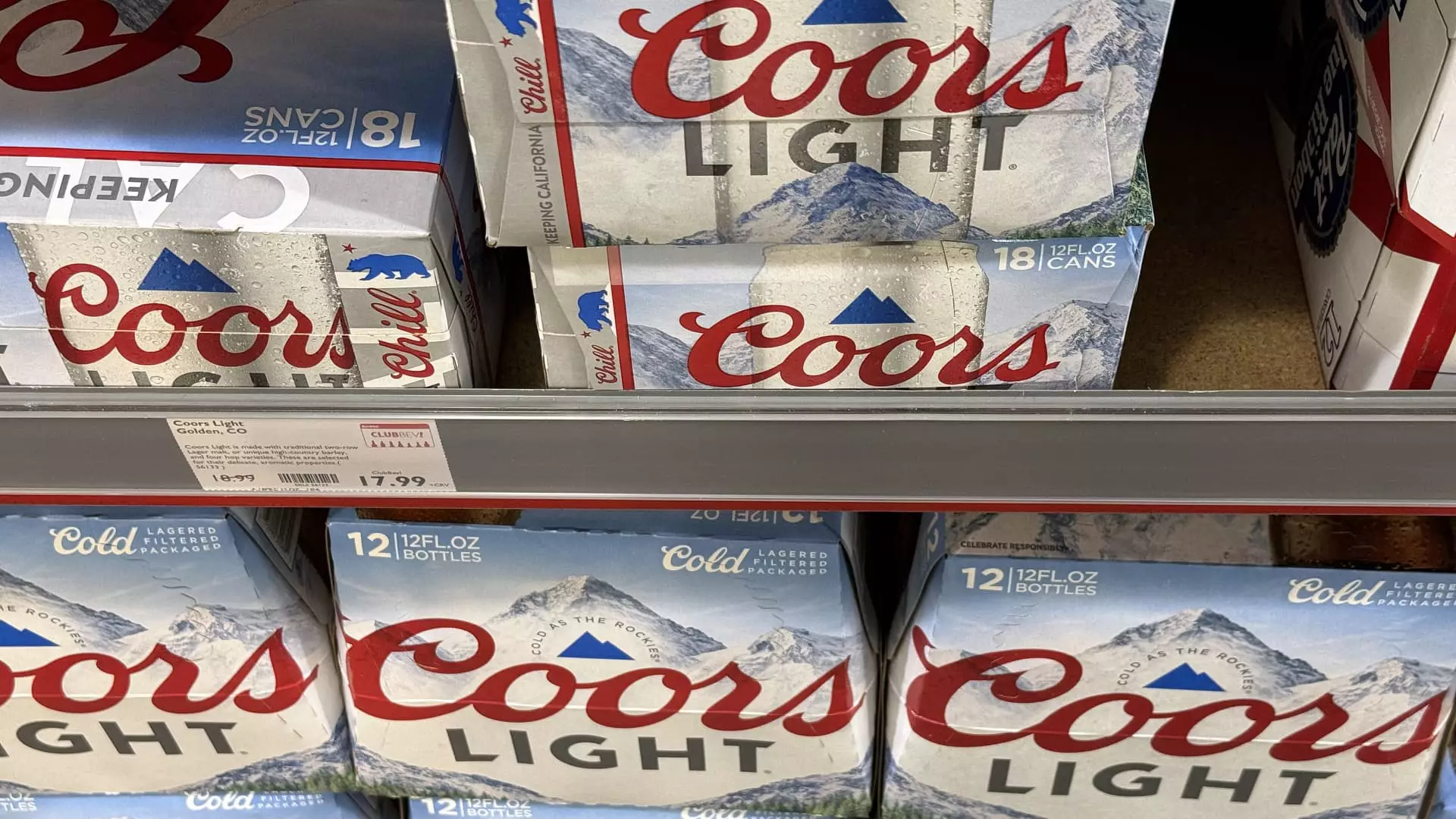In a surprising turn of events, Molson Coors has announced a significant overhaul of its diversity, equity, and inclusion (DEI) policies. This move aligns the company with a rising trend of corporations re-evaluating their approaches towards DEI initiatives. In an internal memo obtained by CNBC, leaders within the company articulated plans to eliminate supplier diversity quotas, citing concerns that these targets are “complicated” and often affected by factors outside their immediate control. This pivot is emblematic of a broader reluctance within some sectors of corporate America to fully embrace the tenets of diversity and inclusion, particularly in a socio-political climate that is increasingly resistant to such measures.
The memo indicated that while Molson Coors will discontinue target-driven diversity initiatives, the company remains committed to ensuring that its suppliers reflect its diverse customer base. This semblance of commitment raises questions about the depth of the company’s resolve to foster diversity. The executives asserted that starting next year, performance incentives for leadership will focus strictly on business outcomes rather than aspirational representation goals. Such a reorientation towards measuring success solely through traditional business metrics might undermine the very essence of inclusion efforts.
Molson Coors is also undertaking a reassessment of its employee training programs, transitioning away from traditional DEI training towards initiatives that emphasize core business objectives. This evolution reflects a larger trend where DEI training is viewed with skepticism. The company claims all current U.S. employees have engaged with its previous programs, yet there is a palpable concern that efficacy and impact were overshadowed by compliance. The transition to a curriculum centered on business goals raises further implications: Will this shift dilute the company’s previously stated mission of fostering an inclusive workplace?
Accompanying this change, Molson Coors plans to rebrand its Employee Resource Groups (ERGs) as Business Resource Groups (BRGs). While the company insists the groups will maintain their original functions, the rebranding suggests a potential shift in focus from advocacy and community support to a business-centric narrative. This change might alienate employees looking for genuine engagement with DEI initiatives rather than an expedient corporate makeover.
The decision to withdraw from third-party rankings, including the esteemed Corporate Equality Index by the Human Rights Campaign, is significant. This index has historically served as a benchmark for assessing corporate policies on LGBTQ+ equality and inclusion. Molson Coors previously achieved a perfect score, indicating a strong commitment to these values. By stepping back from such voluntary rankings, the company raises concerns about its genuine commitment to supporting LGBTQ+ rights and reinforcing a culture of inclusion.
The memo emphasizes that this retraction will not affect the benefits provided to employees nor the company’s overarching commitment to a welcoming workplace. However, skepticism lingers around the implications of these moves. Employees and stakeholders might interpret this shift as a retreat from meaningful engagement with social issues that matter greatly to specific communities within the workforce and customer base.
Context and Broader Implications
Molson Coors’ recent decisions are juxtaposed against a backdrop of a wave of corporations scaling back their DEI commitments. Notably, this follows actions by other companies like Harley-Davidson and Ford, as well as rural retailer Tractor Supply, highlighting a potential trend rooted in an apprehensive corporate response to rising societal anti-DEI sentiments. Such actions hint at a fear of backlash — particularly clear following anti-affirmative action measures taken by the Supreme Court.
While the rationale for scaling back is purportedly based on business considerations, one must ponder the longer-term ramifications of such a strategy. As corporate America appears to grapple with its relationship to DEI, it risks alienating a customer base that increasingly values social responsibility. The question remains: will these corporate shifts prevail in distancing the companies from public scrutiny, or will they ultimately ignite a disparity that undermines progress towards inclusivity? Molson Coors’ journey reflects a polarized landscape where inclusion and equity are not just moral imperatives but crucial to corporate identity and market engagement.


Leave a Reply